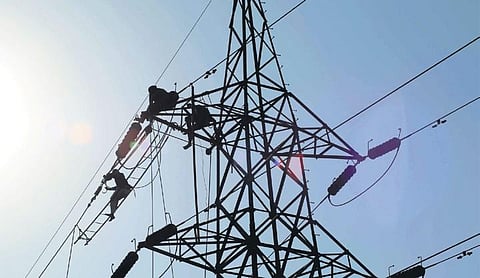

NEW DELHI: The power ministry on Saturday allowed three more states – Tamil Nadu, Madhya Pradesh and Rajasthan – to sell and buy electricity at the spot market after they cleared their dues to the power generators.Only three states – Karnataka, Jammu and Kashmir, and Mizoram -- are now barred from trading in the spot electricity market. These three states together have an outstanding of R801 crore.
Jammu and Kashmir owes a maximum R 552 crore followed by Karnataka (Rs 223 crore) and Mizoram R26 crore. Power System Operation Corporation (POSOCO), a national grid operator invoking the Electricity (Late Payment Surcharge and Related Matters) Rules, 2022 barred 27 discoms from 12 states and one UT from trading in power exchanges in India on account of non-payment on 18 August 2022.
These states included Andhra Pradesh, Tamil Nadu, Telangana, Manipur, Mizoram, Karnataka, Bihar, Rajasthan, Jharkhand, Jammu and Kashmir, Madhya Pradesh, Maharashtra, and Chhattisgarh. Together they owe Rs 5085 crore to the power generators.Among the states, Telangana owes the maximum Rs 1,380 crore, followed by Tamil Nadu 926 crore, Rajasthan 501 crore, Jammu Kashmir 435 crore and Andhra Pradesh 412 crore. On Friday, POSOCO had removed seven states from the banned list.
“TANGEDCO has paid Rs 70 crore owed by it to power generators after the Union power ministry banned it from buying or selling electricity in the spot market,” said a power official from Tamil Nadu Generation and Distribution Corporation.
This is the first time when the ministry has invoked the rule to penalise default discoms by not letting them trade in the three power exchanges -- Indian Energy Exchange (IEX), Power Exchange India Limited (PXIL) and Hindustan Power Exchange (HPX). The Electricity Rules 2022, notified this year in June, mandates discoms to pay payment surcharge (LPS) on the outstanding amount after the due date of payment.
The rate of late payment surcharge for the successive months of default will increase by 0.5 per cent for every month of delay, provided that the late payment surcharge will not be more than 3% higher than the base rate at any time.